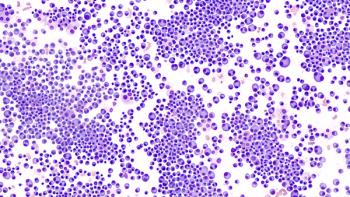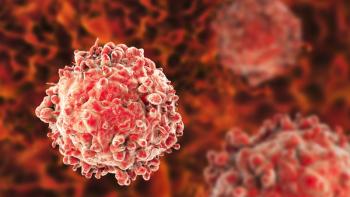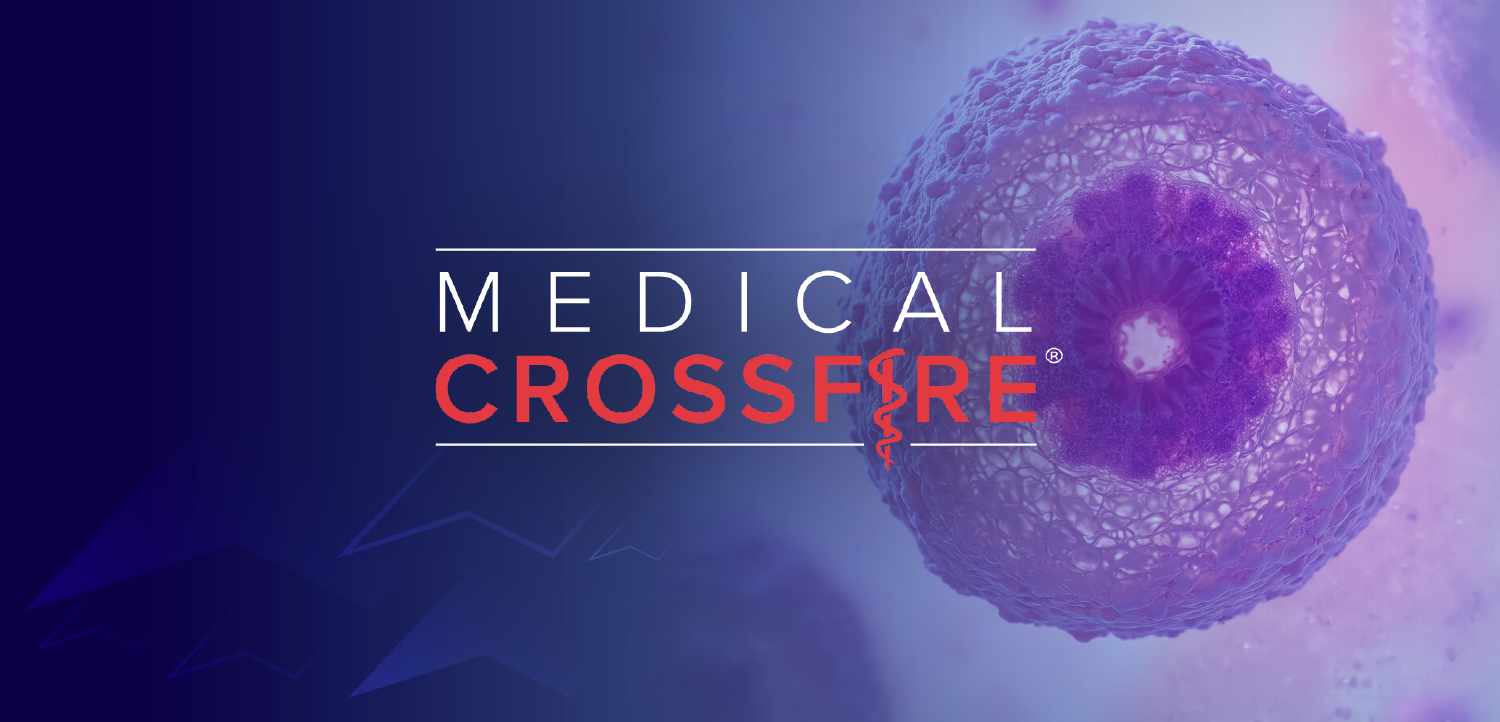
- April 2022
- Volume 16
- Issue 2
2022 ASCO Gastrointestinal Cancers Symposium Highlights
Ivosidenib maintains quality of life in cholangiocarcinoma, immunotherapy outperforms chemotherapy in select gastric/gastroesophageal junction adenocarcinoma, and nivolumab induces high response rates are observed among patients with BRAF V600E–mutant metastatic colorectal cancer.
Trastuzumab Deruxtecan Improves OS in Select Gastric/GEJ Cancer
Updated trial survival results from the phase 2 DESTINY-Gastric01 trial (NCT03329690) revealed that fam-trastuzumab deruxtecan-nxki (Enhertu)
The updated median overall survival (OS) with trastuzumab deruxtecan remained at 12.5 months (95% CI, 10.3-15.2) compared with 8.9 months (95% CI, 6.4-10.4) with chemotherapy (HR, 0.60; 95% CI, 0.42-0.86).
In January 2021, the FDA approved trastu- zumab deruxtecan for the treatment of adult patients with locally advanced or metastatic HER2-positive gastric or GEJ adenocarci- noma who have received a previous trastu- zumab (Herceptin)-based regimen.2
“With continued follow-up after the primary analysis, trastuzumab deruxtecan demonstrated a clinically meaningful OS benefit and clinically relevant improve- ment in [objective response rate] compared with standard chemotherapy in HER2- positive advanced gastric or GEJ cancer,” lead study author Kensei Yamaguchi, MD, of The Cancer Institute Hospital of the Japanese Foundation for Cancer Research in Tokyo, Japan, said in a presentation during the meeting.
References
- Yamaguchi K, Bang YJ, Iwasa S, et al. Trastuzumab deruxtecan (T-DXd; DS-8201) in patients with HER2–positive advanced gastric or gastroesophageal junction (GEJ) adenocarcinoma: final overall survival (OS) results from a randomized, multicenter, open-label, phase 2 study (DESTINY-Gastric01). J Clin Oncol. 2022;40(suppl 4):242. doi:10.1200/JCO.2022.40.4_suppl.242
- FDA approves fam-trastuzumab deruxtecan-nxki for HER2-positive gastric adenocarcinomas. News release. FDA; January 15, 2021. Accessed January 15, 2021. http://bit.ly/35KBZ8T
Ivosidenib Maintains Quality of Life in Patients With Cholangiocarcinoma
Ivosidenib (Tibsovo) was linked to a promising preservation of health-related quality of life among patients with advanced chemotherapy-refractory cholangiocarci- noma and an IDH1 mutation, according to a long-term follow-up of the ClarIDHy study (NCT02989857). The data were presented at the 2022 American Society of Clinical Oncology Gastrointestinal Cancers Symposium.
Investigators specifically assessed how the oral targeted therapy impacted patients’ physical function, pain, and appetite loss compared with placebo. In terms of phys- ical function, the changes between baseline and 27 days of treatment did not reach the prespecified 12- to 13-point threshold— marking a lack of clinically meaningful decline among those treated with ivosidenib.
However, patients who received placebo demonstrated clinically meaningful dete- rioration across multiple cycles. Similarly, for pain, appetite loss, and eating, the least square means of change were reported for patients receiving ivosidenib compared with those on placebo.
“Cholangiocarcinoma is a rare and aggressive cancer, and treatment options
are primarily limited to chemotherapy. Mutations in the IDH1 protein have been found to occur in approximately 1% to 3% of intrahepatic cholangiocarcinomas and 1% of extrahepatic cholangiocarcinomas globally,” Christina X. Chamberlain, PhD, of Servier, explained in a presentation of the findings.
“Overall, patients who remain on ivosid- enib tend to maintain their health-related quality of life based on the least squares mean changes over time from baseline through cycle 27, day 1, which corresponds approximately to year 2,” she said.
Reference
Chamberlain CX, Hua Z, Gliser C, et al. Longitudinal trends in health-related quality of life (HRQoL) among patients treated with ivosidenib (IVO) for IDH1-mutated cholangiocarcinoma (CCA) in the ClarIDHy study. J Clin Oncol. 2022;40(suppl 4):388. doi:10.1200/JCO.2022.40.4_suppl.388
Adding Nivolumab to Encorafenib/ Cetuximab Yields High Response Rates in MSS, BRAF V600E+ Metastatic CRC
Patients with refractory microsatellite stable, BRAF V600E–mutant metastatic colorectal cancer experienced high response rates and manageable adverse events after receiving nivolumab (Opdivo) in addition to encorafenib (Braftovi) plus cetuximab (Erbitux), according to data from a phase 1/2
trial (NCT04017650), presented during the 2022 American Society of Clinical Oncology Gastrointestinal Cancers Symposium.
The results highlighted an overall response rate of 50% (95% CI, 28%-72%) among those treated with the combina- tion, with all patients achieving partial responses. The disease control rate was 96% (95% CI, 77%-100%).
“Encorafenib, cetuximab, and nivolumab appears to be a safe and well-tolerated combination,” lead study author Van K. Morris, MD, an assistant professor in the Department of Gastrointestinal Medical Oncology, Division of Cancer Medicine at The University of Texas MD Anderson Cancer Center in Houston, said during a presentation of the data. “The efficacy of this combination appears promising when considering the precedent of encorafenib and cetuximab alone from the previ- ously reported BEACON [CRC] study [NCT02928224].”
The study regimen included a 300-mg dose of oral encorafenib that was administered daily, 500 mg/m2 of cetuximab intravenously every 14 days, and 480 mg of nivolumab intravenously every 28 days.
Reference
Morris VK, Parseghian CM, Escano M, et al. Phase I/II trial of encorafenib, cetuximab, and nivolumab in patients with microsatellite stable, BRAF V600E metastatic colorectal cancer. J Clin Oncol. 2022;40(suppl 4):12. doi:10.1200/JCO.2022.40.4_suppl.012
Articles in this issue
over 3 years ago
Will Requiring the DNP Improve the Quality of Oncology Nursing?over 3 years ago
Electronic Health Record Notes May Be Perpetuating Biasesover 3 years ago
Caring for an Immunocompromised Bone Marrow Transplant Recipientover 3 years ago
Understanding “Total Pain” in the Context of Oncology Careover 3 years ago
The Future of Nursing Must Be DiverseNewsletter
Knowledge is power. Don’t miss the most recent breakthroughs in cancer care.
















































































